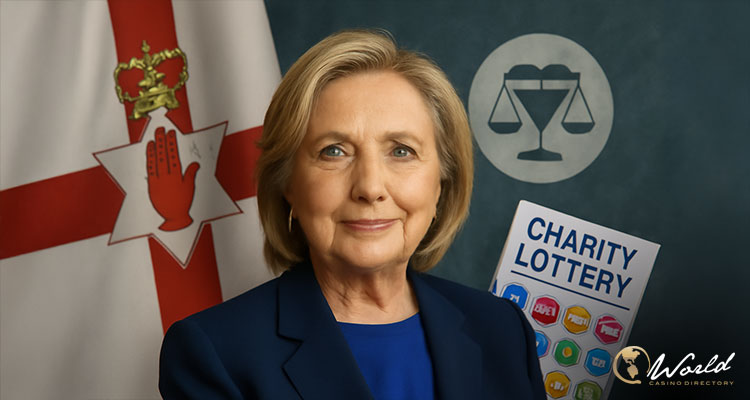Hillary Clinton has voiced her support for proposed changes to Northern Ireland’s charity lottery laws, highlighting the potential to bring vital funding into the region’s civil society. In a video message presented at a People’s Postcode Lottery event in Stormont, the former U.S. Secretary of State emphasized the importance of charity and civil society, both in Northern Ireland and globally.
Potential for increased charitable funding:
This endorsement follows the launch of a public consultation led by Alliance MLA Sian Mulholland, whose Lotteries for Communities Bill seeks to amend the existing laws governing charity lotteries. The bill aims to open the door for larger charity lotteries to operate in Northern Ireland, a move that could significantly boost funding for local causes.
The People’s Postcode Lottery, a subscription-based lottery that supports a variety of charitable causes, has long been advocating for the opportunity to operate on a larger scale in Northern Ireland. Players in the People’s Postcode Lottery sign up with their postcode and contribute a monthly subscription fee for a chance to win cash prizes. A minimum of 30% of the ticket price is donated to charities.
Malcolm Fleming, Director of Public Affairs at the People’s Postcode Lottery, expressed his belief that the current legal framework restricts fundraising potential. He noted that Northern Ireland’s existing laws limit the ability to raise large sums for charitable causes, unlike in other parts of the UK, where larger society lotteries have raised millions for community projects.
In her remarks at the Stormont reception, Clinton recalled the value of the charity sector during her and her husband Bill Clinton’s visits to Northern Ireland. “When we heard that People’s Postcode Lottery might come to Northern Ireland, we wanted to lend our voices in support,” she said, reinforcing the idea that increasing charity lottery participation could positively impact local communities.
However, not everyone is in favor of the changes. According to BBC News, Allwyn UK, the operator of the National Lottery in Northern Ireland, has expressed concerns about the potential consequences of expanding charity lottery operations. The company warns that larger society lotteries could result in a significant financial loss for National Lottery-funded causes. According to Allwyn’s research, Northern Ireland could see a £5.4 million ($7 million) reduction in funding within just five years if Mulholland’s proposed legislation passes.
Mulholland, however, has argued that evidence from Great Britain suggests large charity lotteries do not negatively affect National Lottery participation. Research from across the UK has shown that increasing the size of society lotteries does not result in a decrease in National Lottery sales, an assertion that she believes would hold true for Northern Ireland as well.
Existing legislation and the need for change:
Northern Ireland’s current gambling and lottery laws, enshrined in the Betting, Gaming, Lotteries and Amusements (Northern Ireland) Order 1985, limit the scale of charity lotteries. The legislation, which dates back to a time before the rise of online gambling, does not adequately address modern needs, such as online gambling operations or the contribution of the gambling industry to problem gambling support services. Although the law was updated in 2022 to allow for extended operating hours for bookmakers and bingo halls, it still places significant restrictions on charity lotteries.
Sian Mulholland’s proposed bill seeks to amend these outdated provisions by introducing a framework that would allow larger charity lotteries to operate and raise more funds for local causes. She pointed out that large society lotteries in Great Britain and other European countries have successfully contributed millions to grassroots and community-level organizations. By adjusting the existing laws, Mulholland believes that Northern Ireland could benefit from similar fundraising successes.
The consultation launched by Mulholland is designed to gauge public opinion on the potential benefits and risks of expanding charity lottery operations. This process will help policymakers assess the broad societal impact of such a change, particularly in terms of gambling risks and the possible effects on communities.
As the consultation progresses, Northern Ireland’s legislature will continue to debate the merits of reforming the charity lottery system. Although there is significant support for the changes from the charity sector, the concerns raised by Allwyn UK about financial losses to National Lottery-funded causes highlight the need for careful consideration.
Mulholland has expressed optimism about the future of charity lotteries in Northern Ireland, stating that there is “huge untapped potential” to raise millions of pounds for local charities each year. By allowing larger society lotteries to operate, Northern Ireland could see a significant increase in funding for critical causes, benefiting both the community and the broader charitable sector.


